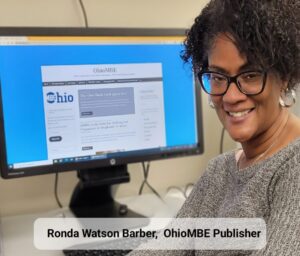By Ronda Watson Barber
In supplier diversity, good faith efforts are supposed to be the backbone of inclusion. They’re the difference between performative statements and real opportunities for certified minority-, women-, and economically disadvantaged-owned businesses.
Public agencies—like school districts, cities, counties, and housing authorities—often promise to be fair and inclusive when spending taxpayer dollars. They establish programs and goals for working with certified vendors. They attend equity events, post about diversity, and highlight inclusion in their mission statements. But when it comes time to award contracts, the numbers tell a very different story.
Saying “we believe in equity” is not the same as practicing it. A true good faith effort requires measurable, documented actions—sending bid notices, publishing opportunities in accessible places, meeting with certified firms, and keeping clear records of outreach. It’s not optional paperwork; it’s a moral and contractual obligation.
When agencies fail to do this—or worse, when they let their inclusion offices sit vacant for months or years—they are violating both the spirit and the letter of their own policies. It’s not a mistake. It’s a choice. And those choices have consequences.
Across the state, we continue to see agencies tout diversity numbers that are misleading, incomplete, or downright inequitable. In some cases, millions of dollars in contracts are awarded while Black vendors receive only a fraction—despite being certified and qualified. Yet, too often, there’s silence from leadership and elected boards. Silence, in this case, equals acceptance.
Here’s the hard truth:
When public dollars are spent without equitable inclusion, it becomes taxation without participation. You can’t build a culture of belonging for students when your purchasing practices exclude their parents’ businesses. You can’t talk about economic development while refusing to circulate economic opportunity.
And that raises a serious question that deserves real discussion in our community:
If Black-certified CCS vendors have repeatedly been excluded from contracting opportunities due to lack of outreach, transparency, or documented good faith efforts—should they consider legal action, including a potential class-action lawsuit?
This isn’t about vengeance; it’s about accountability. When systemic exclusion continues unchecked, the courts sometimes become the only avenue for fairness. Exploring legal remedies is not about confrontation—it’s about correction.
Every contract awarded without inclusion is another missed opportunity to build wealth, employ local residents, and circulate dollars within the community that funds these projects. Public dollars should create public benefit for everyone, not just a select few firms who are continuously favored through relationships or insider access.
Our message to public officials is simple: Inclusion is not charity—it’s good governance.
Good faith efforts must be more than paperwork—they must be proof of progress.
Until every certified vendor has a fair chance to compete, the promise of supplier diversity remains unfulfilled. The question isn’t whether agencies can do better—it’s whether they will.
Just my thoughts.…rwb
Discover more from OhioMBE
Subscribe to get the latest posts sent to your email.
